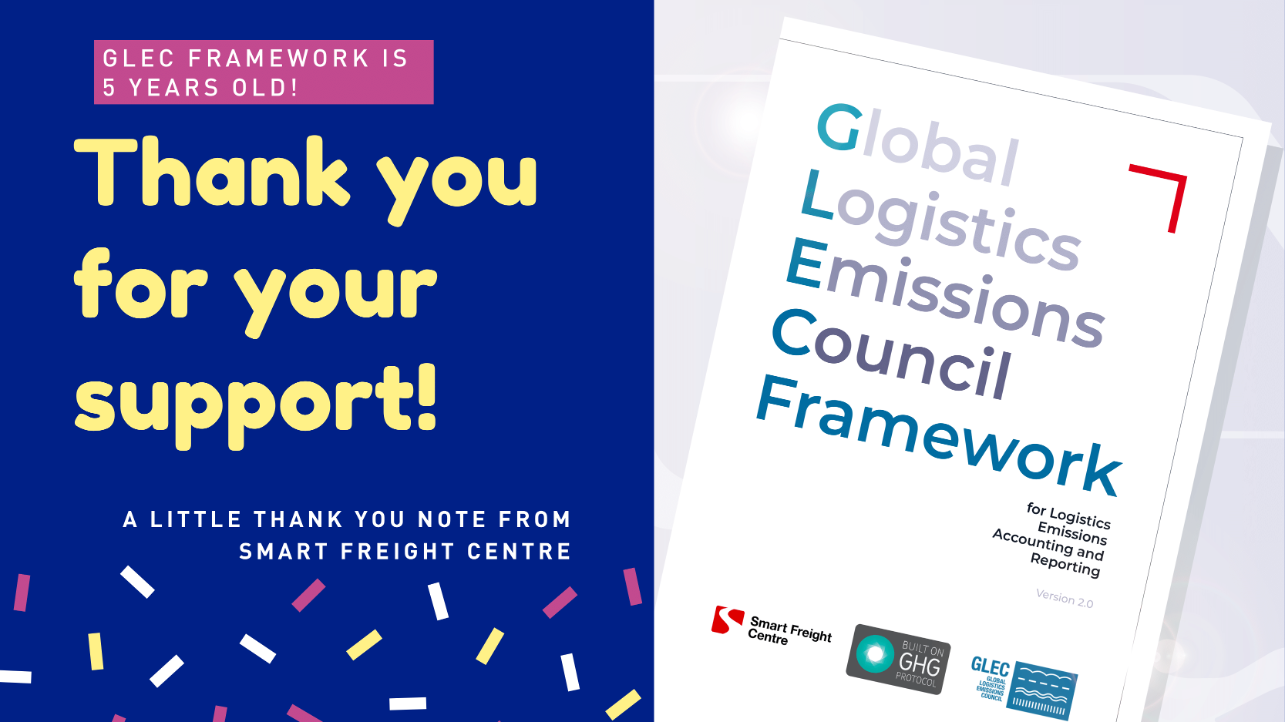THE GLEC FRAMEWORK IS 5 YEARS OLD!
The Global Logistics Emissions Council (GLEC) celebrated this week the fifth anniversary of the GLEC Framework. Launched in 2016, it is the only globally recognised methodology to calculate greenhouse gases emissions consistently across the multi-modal logistics supply chain. Over 120 companies are now using the Framework to calculate their emissions. Companies that started using the GLEC Framework have now collectively reduced/avoided well in excess of 6 million tonnes of CO2e until 2019. CLECAT has been involved in the work of GLEC since the very beginning and is currently a GLEC member.
CLECAT joined the GLEC as a partner in 2019 and participates in its meetings regularly. Meanwhile, the GLEC Framework is of great use for the ongoing development of the ISO 14083 standard, which would establish a common methodology for the quantification and reporting of GHG emissions of any transport operation within a transport chain, including hub operations. The aim of the project, to which CLECAT contributed financially, is to embed the principles of the GLEC Framework into a formalised ISO structure and ensure that companies, governments and investors use a single methodology, consistent with the GLEC Framework, in the future. Notedly, the so-called Vienna Agreement would ensure that the review of existing CEN standard EN16258 is captured within the development of the new ISO. The publication of the finalised ISO 14083 was expected in summer 2022.
More information on the GLEC Framework is available via this link.
